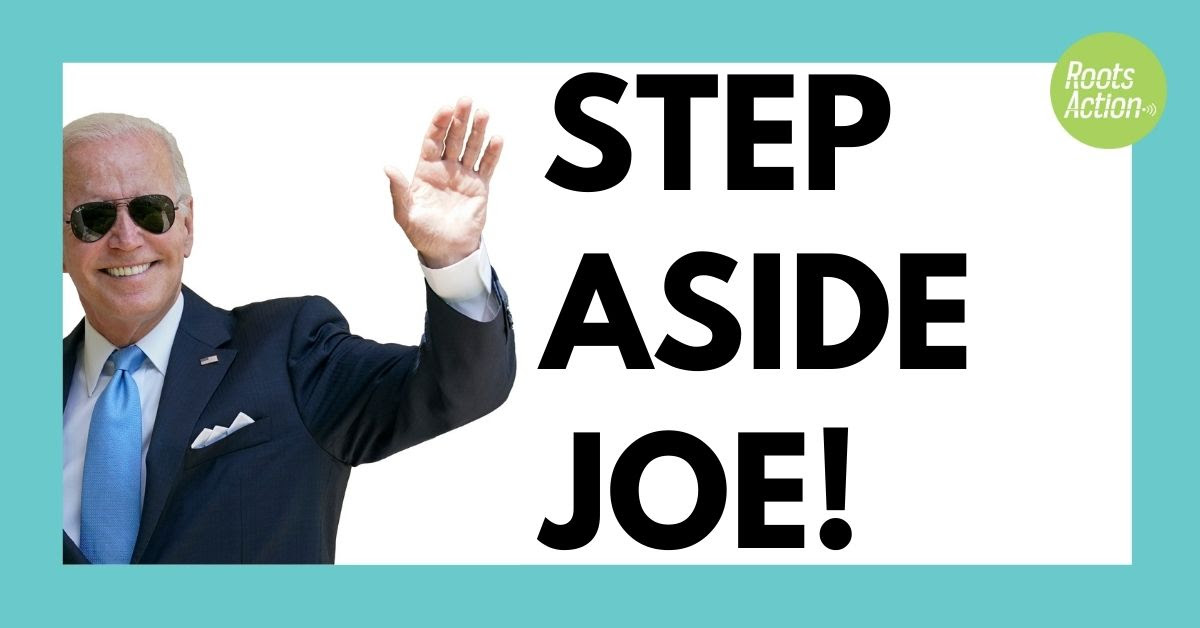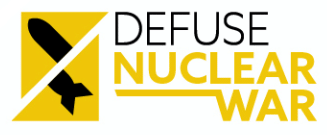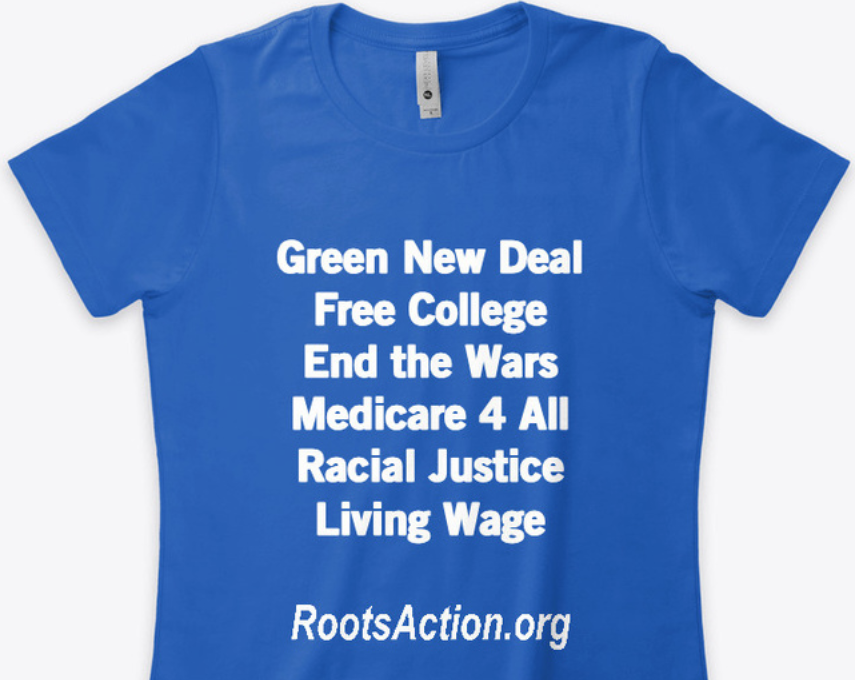The Honorable Charles E. Schumer
Senate Majority Leader
The Honorable Nancy Pelosi
Speaker, United States House of Representatives
The Honorable Jack Reed
Chairman, Senate Armed Services Committee
The Honorable Adam Smith
Chairman, House Armed Services Committee
Dear Majority Leader Schumer, Speaker Pelosi, Chairman Reed, and Chairman Smith:
We write as civil society organizations [representing millions of Americans] who believe that far more oversight is needed on the impacts of U.S. sanctions. Sanctions have become a tool of first resort for policymakers in both Congress and the Biden administration, with several countries subject to comprehensive sanctions regimes. However, the U.S. government does not formally assess whether economy-wide sanctions are successful in achieving their objectives nor measure their impact on civilians. Regardless of one’s views regarding the use of sanctions to respond to a number of situations across the globe, as a matter of good governance it is imperative that there be formal procedures to determine their efficacy and measure their humanitarian impacts.
For these reasons, we urge you to support Rep. Chuy García’s amendment (floor amendment #452) which was added for a third consecutive year to the House version of the National Defense Authorization Act (NDAA). Regrettably, this amendment was dropped from the FY22 and FY21 NDAAs in conference along with many other urgent priorities. For the good of U.S. foreign policy and in support of humanitarian outcomes across the globe, we urge you to include it in the FY23 NDAA.
The amendment directs the Government Accountability Office, along with the State Department and Treasury Departments, to conduct an impartial assessment of comprehensive sanctions’ effectiveness in achieving U.S. foreign policy goals and measure their humanitarian impacts. With such a report, policymakers and the public would have a far greater understanding of whether the stated goals of sanctions are being met as well as the potential impact of sanctions on the availability of food, medicine and other essential goods to the millions of people who live under comprehensive sanctions regimes. Such a study could help inform the decision of policymakers in the future, including by broadening licensing to support humanitarian aid trade that is supposed to be exempt.
Earlier this year, 24 organizations - including many representing diasporas directly impacted by sanctions - wrote the Biden administration and highlighted the severe humanitarian impacts of economic coercion in a variety of countries subject to comprehensive sanctions regimes. Last year, 55 organizations called on the Biden administration to review the impact of sanctions on COVID-19 relief and issue necessary legal reforms to mitigate sanctions' harm on ordinary civilians. Additionally, the Biden administration has underscored its commitment to “address more systematically the challenges associated with conducting humanitarian activities through legitimate channels in heavily sanctioned jurisdictions.” The García amendment would thus serve a key commitment of the administration’s preferred approach on sanctions.
Impact assessments provide valuable information to help promote a U.S foreign policy that advances U.S. interests while protecting innocent civilians and maintaining channels for humanitarian organizations to continue their work. This issue is even more important as populations around the globe continue to manage the shared threat of the COVID-19 pandemic. We ask that you support the García amendment and ensure that the provisions in this amendment be retained throughout the conferencing process.
We appreciate your consideration, and would also be happy to schedule a meeting with staff working on this issue to give insight about how the provisions in this amendment are crucial to our work.
Sincerely,
Afghans for a Better Tomorrow
American Friends Service Committee
American Muslim Bar Association (AMBA)
American Muslim Empowerment Network (AMEN)
Center for Economic and Policy Research (CEPR)
Charity & Security Network
Churches for Middle East Peace (CMEP)
CODEPINK
Demand Progress
Evangelical Lutheran Church in America
Foreign Policy for America
Friends Committee on National Legislation
Global Ministries of the Christian Church (Disciples of Christ) and the United Church of Christ
ICNA Council for Social Justice (CSJ)
MADRE
Miaan Group
MPower Change Action Fund
National Iranian American Council
Oil for Venezuela
Peace Action
Peace Corps Iran Association
Ploughshares Fund
Presbyterian Church (USA)
Progressive Democrats of America - Middle East Alliances
Project South
RootsAction.org
The Quincy Institute
The United Methodist Church -- General Board of Church and Society
Unfreeze Afghanistan
Win Without War
Women Cross DMZ
Women's Actions for New Directions (WAND)
World BEYOND War
Yemen Relief & Reconstruction Foundation
Senate Majority Leader
The Honorable Nancy Pelosi
Speaker, United States House of Representatives
The Honorable Jack Reed
Chairman, Senate Armed Services Committee
The Honorable Adam Smith
Chairman, House Armed Services Committee
Dear Majority Leader Schumer, Speaker Pelosi, Chairman Reed, and Chairman Smith:
We write as civil society organizations [representing millions of Americans] who believe that far more oversight is needed on the impacts of U.S. sanctions. Sanctions have become a tool of first resort for policymakers in both Congress and the Biden administration, with several countries subject to comprehensive sanctions regimes. However, the U.S. government does not formally assess whether economy-wide sanctions are successful in achieving their objectives nor measure their impact on civilians. Regardless of one’s views regarding the use of sanctions to respond to a number of situations across the globe, as a matter of good governance it is imperative that there be formal procedures to determine their efficacy and measure their humanitarian impacts.
For these reasons, we urge you to support Rep. Chuy García’s amendment (floor amendment #452) which was added for a third consecutive year to the House version of the National Defense Authorization Act (NDAA). Regrettably, this amendment was dropped from the FY22 and FY21 NDAAs in conference along with many other urgent priorities. For the good of U.S. foreign policy and in support of humanitarian outcomes across the globe, we urge you to include it in the FY23 NDAA.
The amendment directs the Government Accountability Office, along with the State Department and Treasury Departments, to conduct an impartial assessment of comprehensive sanctions’ effectiveness in achieving U.S. foreign policy goals and measure their humanitarian impacts. With such a report, policymakers and the public would have a far greater understanding of whether the stated goals of sanctions are being met as well as the potential impact of sanctions on the availability of food, medicine and other essential goods to the millions of people who live under comprehensive sanctions regimes. Such a study could help inform the decision of policymakers in the future, including by broadening licensing to support humanitarian aid trade that is supposed to be exempt.
Earlier this year, 24 organizations - including many representing diasporas directly impacted by sanctions - wrote the Biden administration and highlighted the severe humanitarian impacts of economic coercion in a variety of countries subject to comprehensive sanctions regimes. Last year, 55 organizations called on the Biden administration to review the impact of sanctions on COVID-19 relief and issue necessary legal reforms to mitigate sanctions' harm on ordinary civilians. Additionally, the Biden administration has underscored its commitment to “address more systematically the challenges associated with conducting humanitarian activities through legitimate channels in heavily sanctioned jurisdictions.” The García amendment would thus serve a key commitment of the administration’s preferred approach on sanctions.
Impact assessments provide valuable information to help promote a U.S foreign policy that advances U.S. interests while protecting innocent civilians and maintaining channels for humanitarian organizations to continue their work. This issue is even more important as populations around the globe continue to manage the shared threat of the COVID-19 pandemic. We ask that you support the García amendment and ensure that the provisions in this amendment be retained throughout the conferencing process.
We appreciate your consideration, and would also be happy to schedule a meeting with staff working on this issue to give insight about how the provisions in this amendment are crucial to our work.
Sincerely,
Afghans for a Better Tomorrow
American Friends Service Committee
American Muslim Bar Association (AMBA)
American Muslim Empowerment Network (AMEN)
Center for Economic and Policy Research (CEPR)
Charity & Security Network
Churches for Middle East Peace (CMEP)
CODEPINK
Demand Progress
Evangelical Lutheran Church in America
Foreign Policy for America
Friends Committee on National Legislation
Global Ministries of the Christian Church (Disciples of Christ) and the United Church of Christ
ICNA Council for Social Justice (CSJ)
MADRE
Miaan Group
MPower Change Action Fund
National Iranian American Council
Oil for Venezuela
Peace Action
Peace Corps Iran Association
Ploughshares Fund
Presbyterian Church (USA)
Progressive Democrats of America - Middle East Alliances
Project South
RootsAction.org
The Quincy Institute
The United Methodist Church -- General Board of Church and Society
Unfreeze Afghanistan
Win Without War
Women Cross DMZ
Women's Actions for New Directions (WAND)
World BEYOND War
Yemen Relief & Reconstruction Foundation










